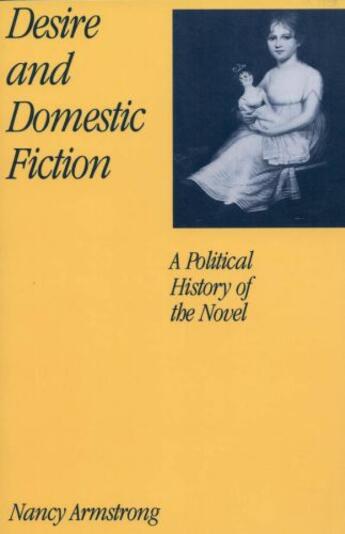-
Nombre de pages : (-)
-
Collection :
(-)
-
Genre :
(-)
-
Thème :
Non attribué
-
Prix littéraire(s) :
(-)
Résumé:
Desire and Domestic Fiction argues that far from being removed from historical events, novels by writers from Richardson to Woolf were themselves agents of the rise of the middle class. Drawing on texts that range from 18th-century female conduct books and contract theory to modern... Voir plus
Desire and Domestic Fiction argues that far from being removed from historical events, novels by writers from Richardson to Woolf were themselves agents of the rise of the middle class. Drawing on texts that range from 18th-century female conduct books and contract theory to modern psychoanalytic case histories and theories of reading, Armstrong shows that the emergence of a particular form of female subjectivity capable of reigning over the household paved the way for the establishment of institutions which today are accepted centers of political power. Neither passive subjects nor embattled rebels, the middle-class women who were authors and subjects of the major tradition of British fiction were among the forgers of a new form of power that worked in, and through, their writing to replace prevailing notions of "identity" with a gender-determined subjectivity. Examining the works of such novelists as Samuel Richardson, Jane Austen, and the Brontes, she reveals the ways in which these authors rewrite the domestic practices and sexual relations of the past to create the historical context through which modern institutional power would seem not only natural but also humane, and therefore to be desired.
Donner votre avis














